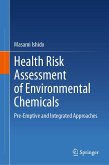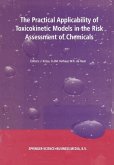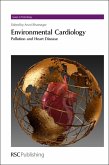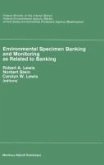Aging and Vulnerability to Environmental Chemicals (eBook, PDF)
Age-related Disorders and Their Origins in Enviromental Exposures
Redaktion: Weiss, Bernard
172,95 €
172,95 €
inkl. MwSt.
Sofort per Download lieferbar

86 °P sammeln
172,95 €
Als Download kaufen

172,95 €
inkl. MwSt.
Sofort per Download lieferbar

86 °P sammeln
Jetzt verschenken
Alle Infos zum eBook verschenken
172,95 €
inkl. MwSt.
Sofort per Download lieferbar
Alle Infos zum eBook verschenken

86 °P sammeln
Aging and Vulnerability to Environmental Chemicals (eBook, PDF)
Age-related Disorders and Their Origins in Enviromental Exposures
Redaktion: Weiss, Bernard
- Format: PDF
- Merkliste
- Auf die Merkliste
- Bewerten Bewerten
- Teilen
- Produkt teilen
- Produkterinnerung
- Produkterinnerung

Bitte loggen Sie sich zunächst in Ihr Kundenkonto ein oder registrieren Sie sich bei
bücher.de, um das eBook-Abo tolino select nutzen zu können.
Hier können Sie sich einloggen
Hier können Sie sich einloggen
Sie sind bereits eingeloggt. Klicken Sie auf 2. tolino select Abo, um fortzufahren.

Bitte loggen Sie sich zunächst in Ihr Kundenkonto ein oder registrieren Sie sich bei bücher.de, um das eBook-Abo tolino select nutzen zu können.
- Geräte: PC
- mit Kopierschutz
- eBook Hilfe
- Größe: 4.92MB
Andere Kunden interessierten sich auch für
![Health Risk Assessment of Environmental Chemicals (eBook, PDF) Health Risk Assessment of Environmental Chemicals (eBook, PDF)]() Masami IshidoHealth Risk Assessment of Environmental Chemicals (eBook, PDF)113,95 €
Masami IshidoHealth Risk Assessment of Environmental Chemicals (eBook, PDF)113,95 €![In Situ Bioavailability and Toxicity of Organic Chemicals in Aquatic Systems (eBook, PDF) In Situ Bioavailability and Toxicity of Organic Chemicals in Aquatic Systems (eBook, PDF)]() In Situ Bioavailability and Toxicity of Organic Chemicals in Aquatic Systems (eBook, PDF)91,95 €
In Situ Bioavailability and Toxicity of Organic Chemicals in Aquatic Systems (eBook, PDF)91,95 €![The Practical Applicability of Toxicokinetic Models in the Risk Assessment of Chemicals (eBook, PDF) The Practical Applicability of Toxicokinetic Models in the Risk Assessment of Chemicals (eBook, PDF)]() The Practical Applicability of Toxicokinetic Models in the Risk Assessment of Chemicals (eBook, PDF)113,95 €
The Practical Applicability of Toxicokinetic Models in the Risk Assessment of Chemicals (eBook, PDF)113,95 €![Toxicology, Survival and Health Hazards of Combustion Products (eBook, PDF) Toxicology, Survival and Health Hazards of Combustion Products (eBook, PDF)]() Toxicology, Survival and Health Hazards of Combustion Products (eBook, PDF)200,95 €
Toxicology, Survival and Health Hazards of Combustion Products (eBook, PDF)200,95 €![Environmental Cardiology (eBook, PDF) Environmental Cardiology (eBook, PDF)]() Environmental Cardiology (eBook, PDF)137,95 €
Environmental Cardiology (eBook, PDF)137,95 €![Free Radical Biology and Environmental Toxicity (eBook, PDF) Free Radical Biology and Environmental Toxicity (eBook, PDF)]() Free Radical Biology and Environmental Toxicity (eBook, PDF)113,95 €
Free Radical Biology and Environmental Toxicity (eBook, PDF)113,95 €![Environmental Specimen Banking and Monitoring as Related to Banking (eBook, PDF) Environmental Specimen Banking and Monitoring as Related to Banking (eBook, PDF)]() Environmental Specimen Banking and Monitoring as Related to Banking (eBook, PDF)161,95 €
Environmental Specimen Banking and Monitoring as Related to Banking (eBook, PDF)161,95 €-
-
-
Produktdetails
- Verlag: RSC
- Seitenzahl: 480
- Erscheinungstermin: 31. Dezember 2012
- Englisch
- ISBN-13: 9781849734660
- Artikelnr.: 44816257
Dieser Download kann aus rechtlichen Gründen nur mit Rechnungsadresse in A, D ausgeliefert werden.
- Herstellerkennzeichnung Die Herstellerinformationen sind derzeit nicht verfügbar.
Dr. Bernard Weiss is Professor of Environmental Medicine at the University of Rochester School of Medicine and Dentistry, where he has been a member of the faculty since 1965. He is also a member of its Environmental Health Sciences Center. Before coming to Rochester, he served on the faculty of the Johns Hopkins School of Medicine, and, earlier, held an appointment at the U.S. Air Force School of Aviation Medicine. Dr. Weiss has served as a member of many committees and panels devoted to toxicology and environmental health, including those organized by the U.S. Environmental Protection Agency's Science Advisory Board, and the National Academy of Sciences. He is especially concerned with risk assessment issues arising from the effects of environmental chemicals on brain development and brain aging, and with the role played by sex differences. He is the editor or co-editor of seven books and monographs and author or co-author of over 250 articles. His special interests and publications lie primarily in areas that involve chemical influences on behavior; these include the neurobehavioral toxicology of metals such as lead, mercury and manganese; developmental toxicants such as dioxin; solvents such as toluene and methanol; endocrine disruptors such as phthalates; and air pollutants such as ozone. His current research projects, supported by NIH, examine the effects of Bisphenol A on brain sexual differentiation.
Parkinson's Disease
Cognitive dysfunction and lead
Cardiovascular disease, metabolic syndrome
Breast cancer
Prostate cancer
Kidney disease
Liver disease
Osteoporosis
Immune system disorders
Male reproductive tract disorders
Female reproductive tract disorders
Air Pollutants
Mercury
Manganese
Aluminium
Cadmium
PCBs and Dioxins
Bisphenol A
Obesogens
Subject Index
Cognitive dysfunction and lead
Cardiovascular disease, metabolic syndrome
Breast cancer
Prostate cancer
Kidney disease
Liver disease
Osteoporosis
Immune system disorders
Male reproductive tract disorders
Female reproductive tract disorders
Air Pollutants
Mercury
Manganese
Aluminium
Cadmium
PCBs and Dioxins
Bisphenol A
Obesogens
Subject Index
Parkinson's Disease
Cognitive dysfunction and lead
Cardiovascular disease, metabolic syndrome
Breast cancer
Prostate cancer
Kidney disease
Liver disease
Osteoporosis
Immune system disorders
Male reproductive tract disorders
Female reproductive tract disorders
Air Pollutants
Mercury
Manganese
Aluminium
Cadmium
PCBs and Dioxins
Bisphenol A
Obesogens
Subject Index
Cognitive dysfunction and lead
Cardiovascular disease, metabolic syndrome
Breast cancer
Prostate cancer
Kidney disease
Liver disease
Osteoporosis
Immune system disorders
Male reproductive tract disorders
Female reproductive tract disorders
Air Pollutants
Mercury
Manganese
Aluminium
Cadmium
PCBs and Dioxins
Bisphenol A
Obesogens
Subject Index







